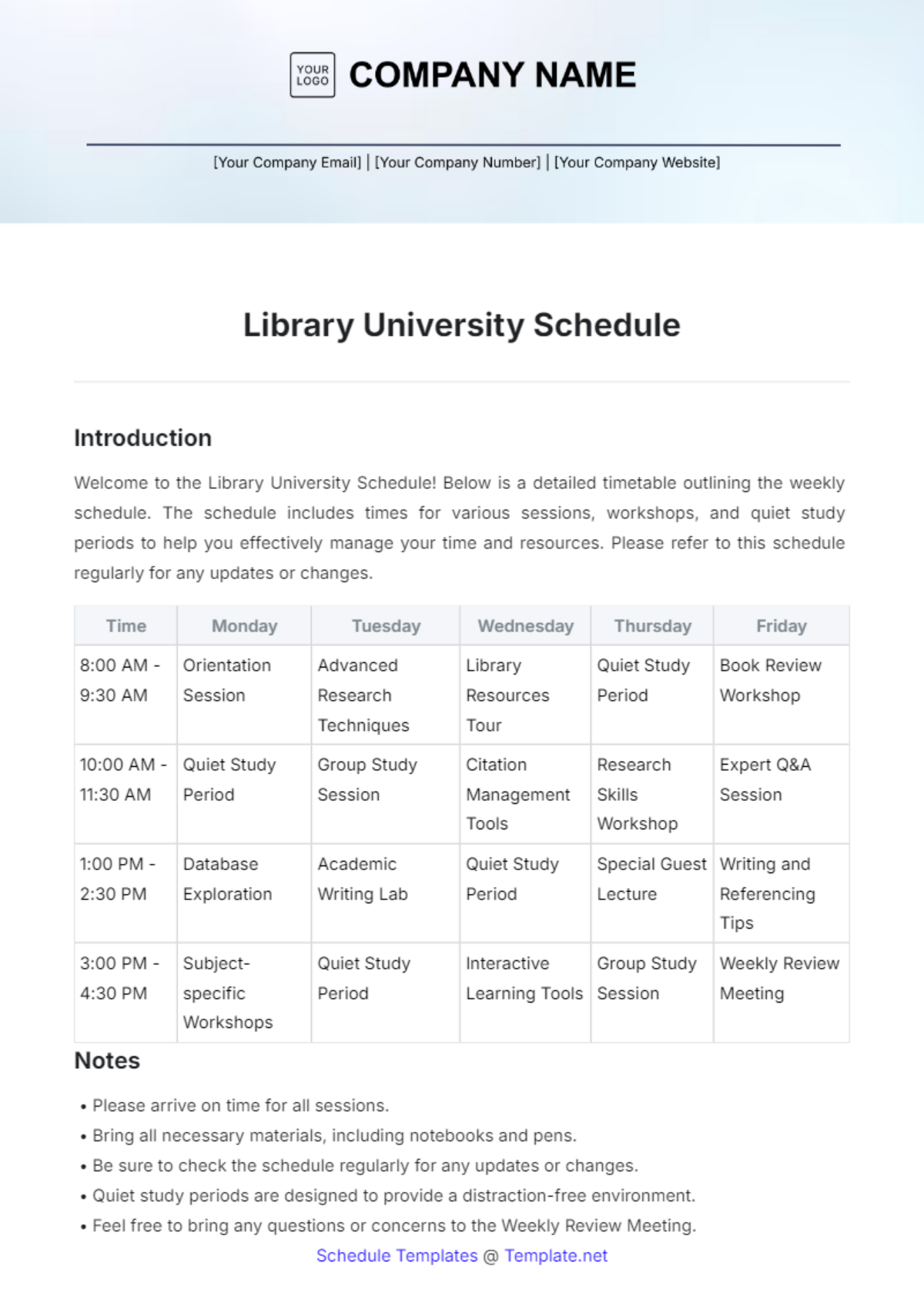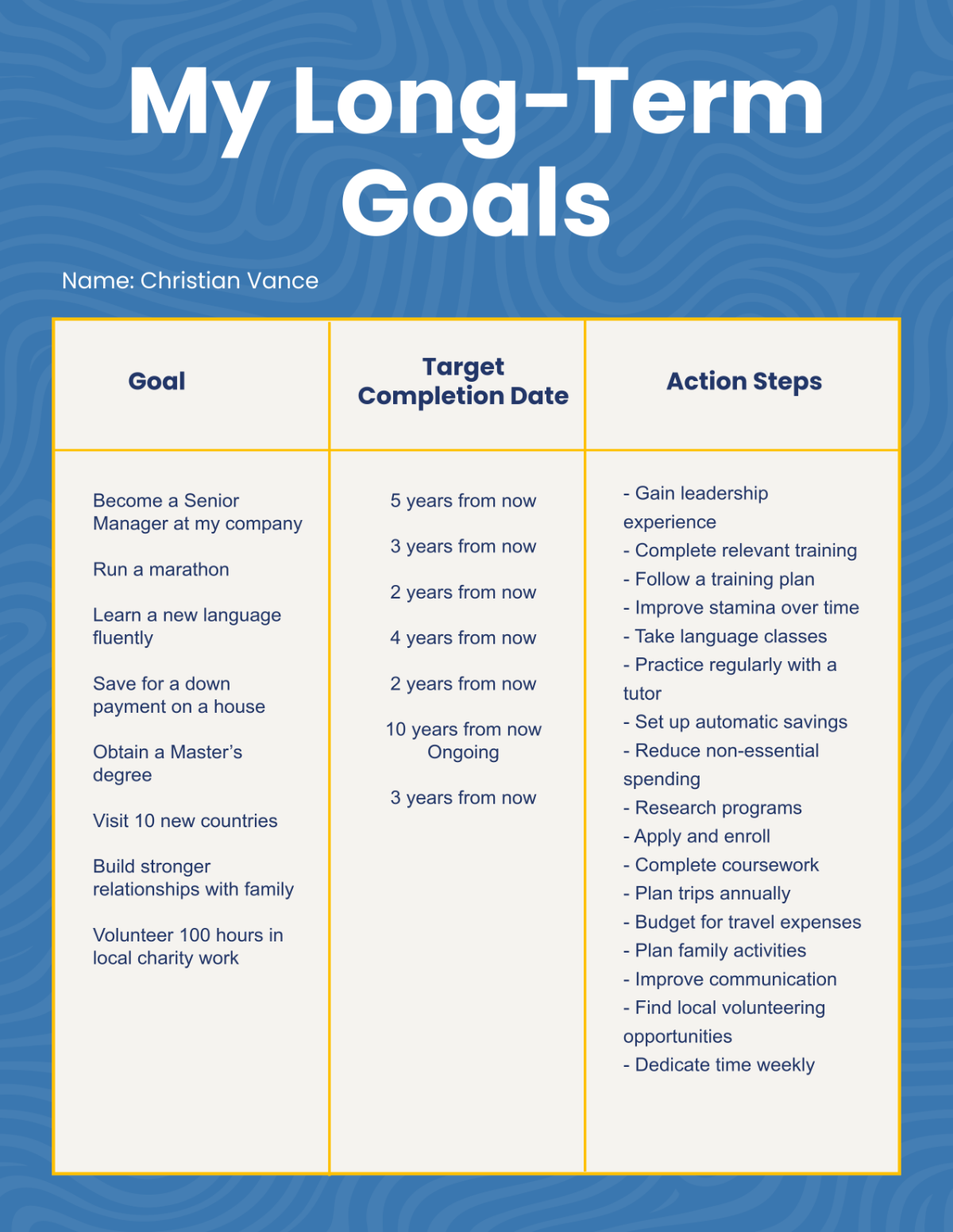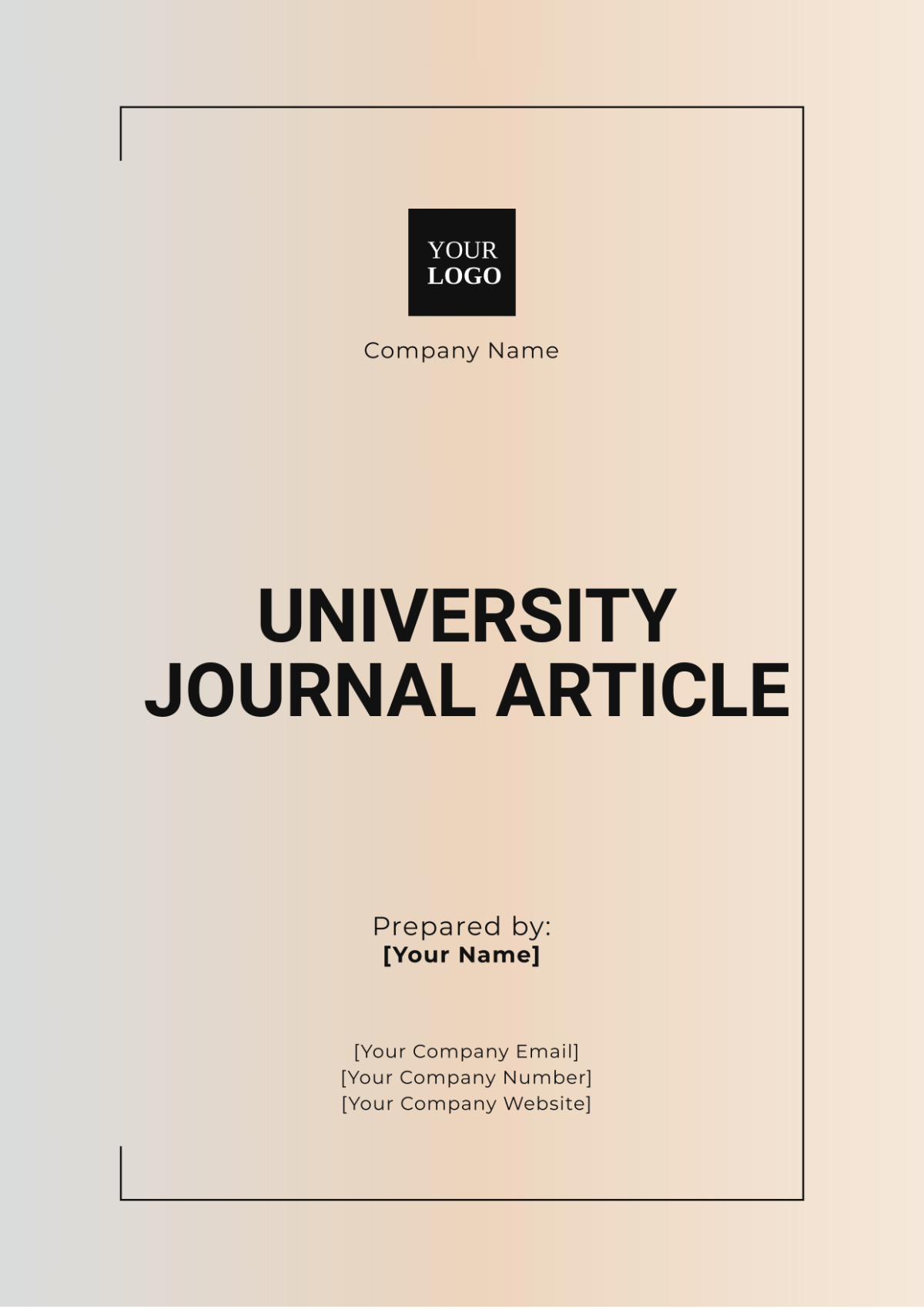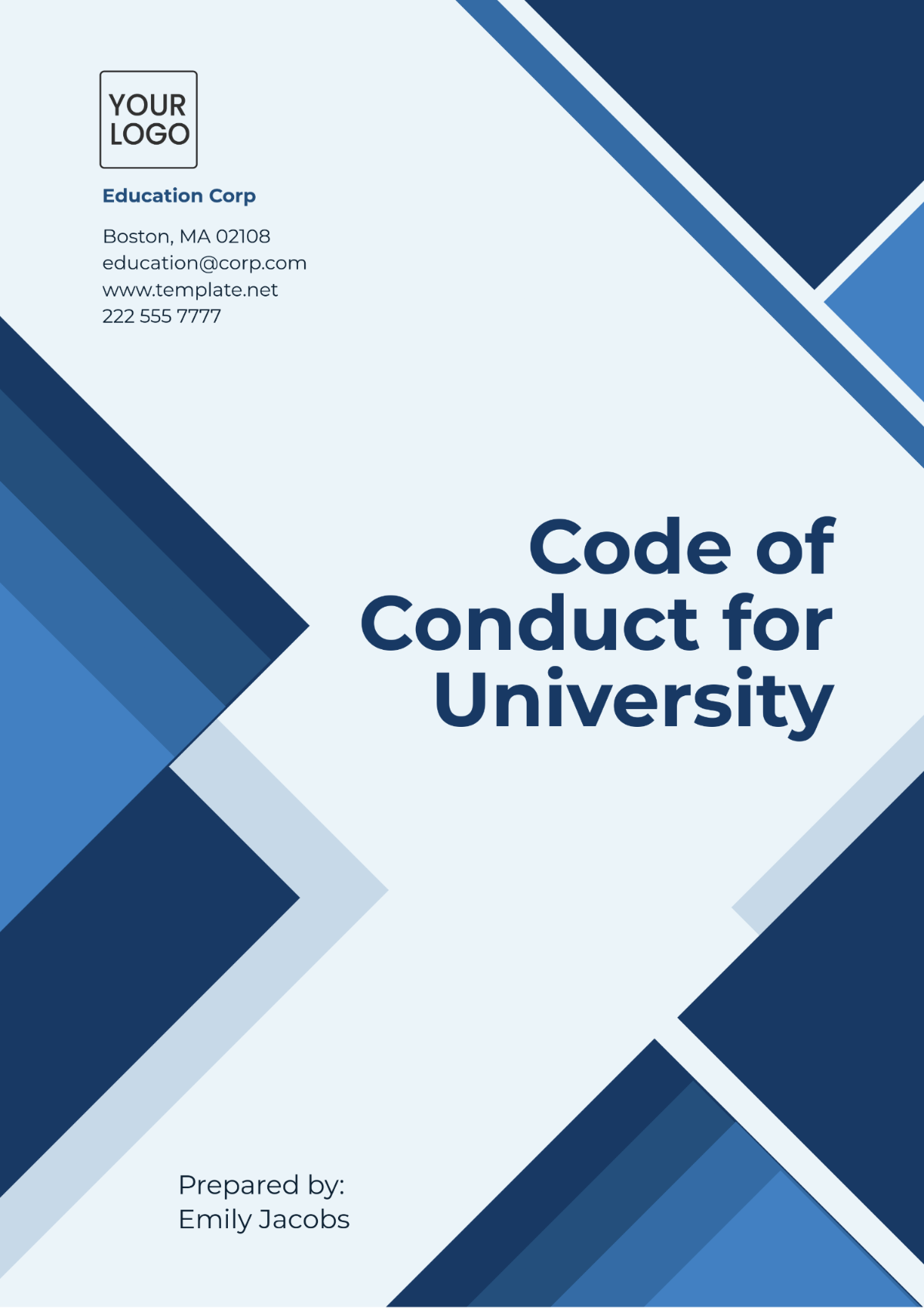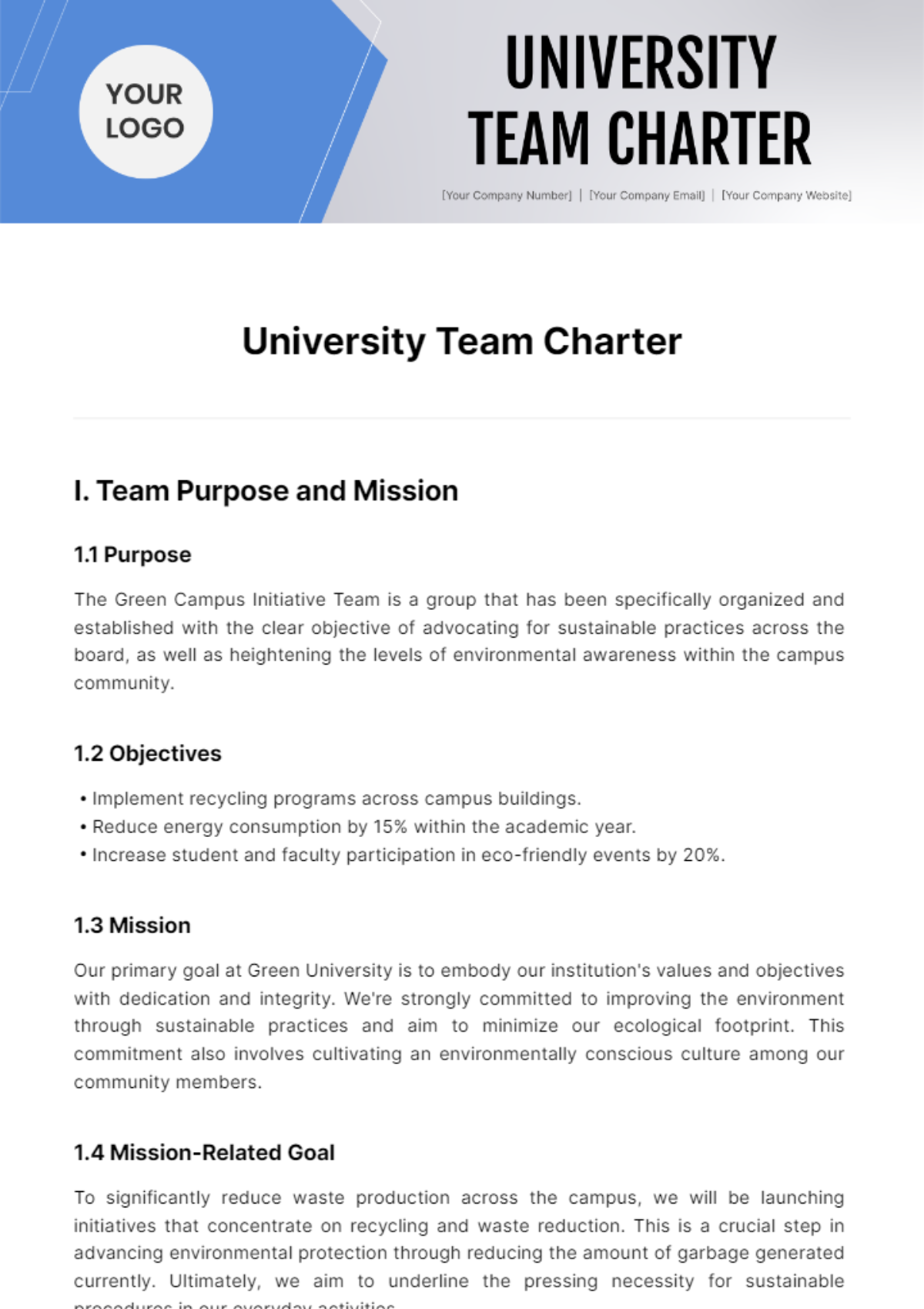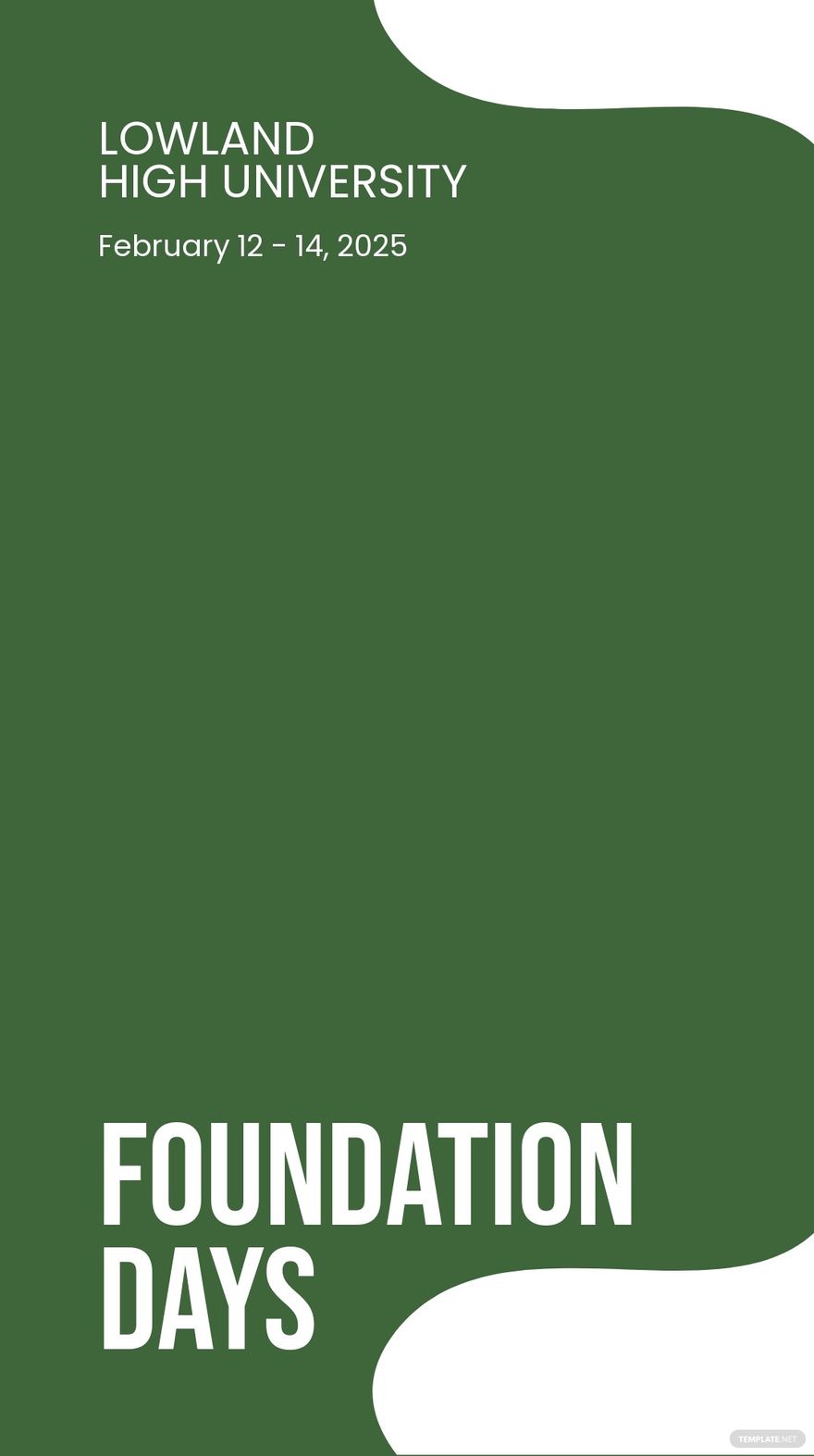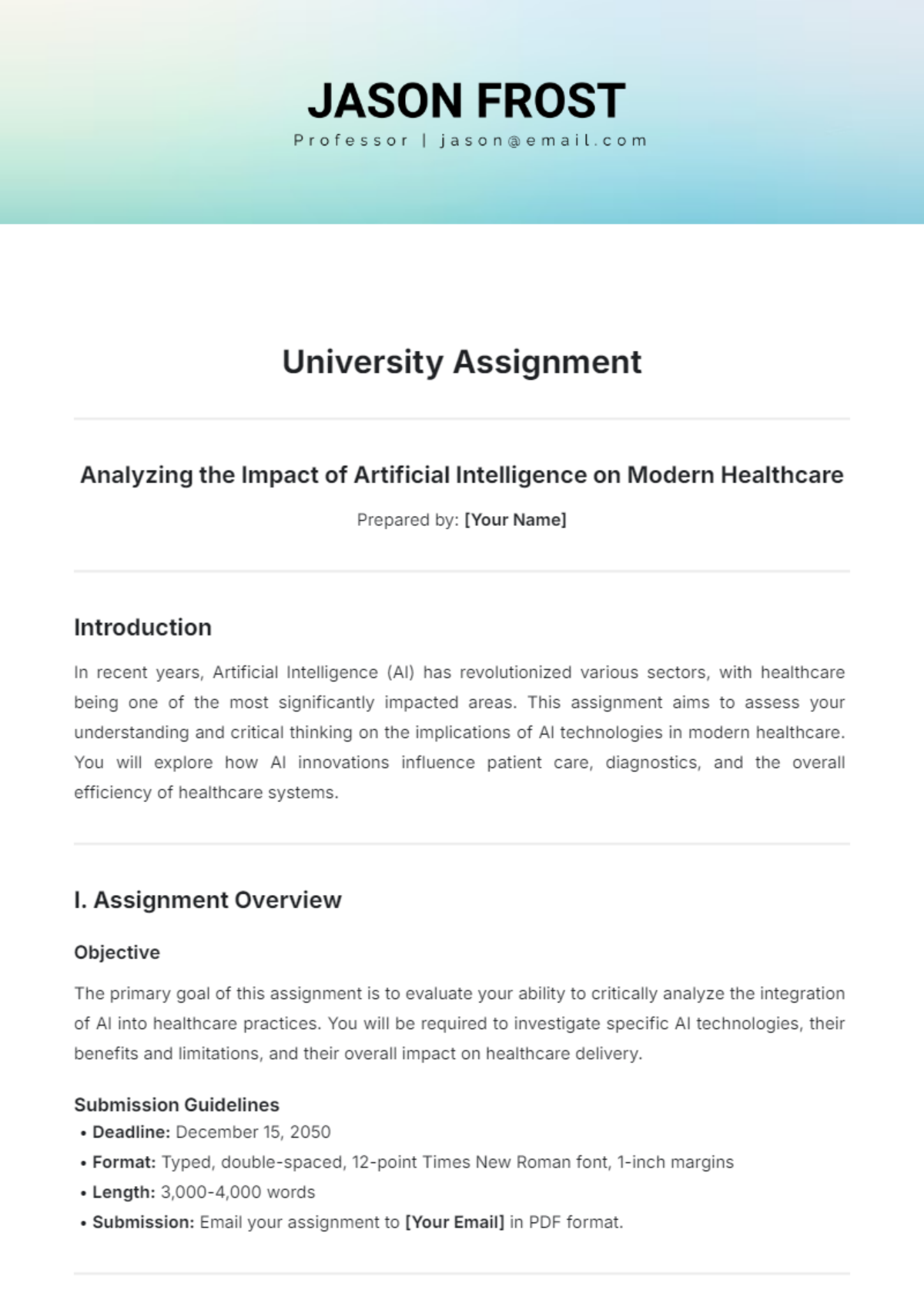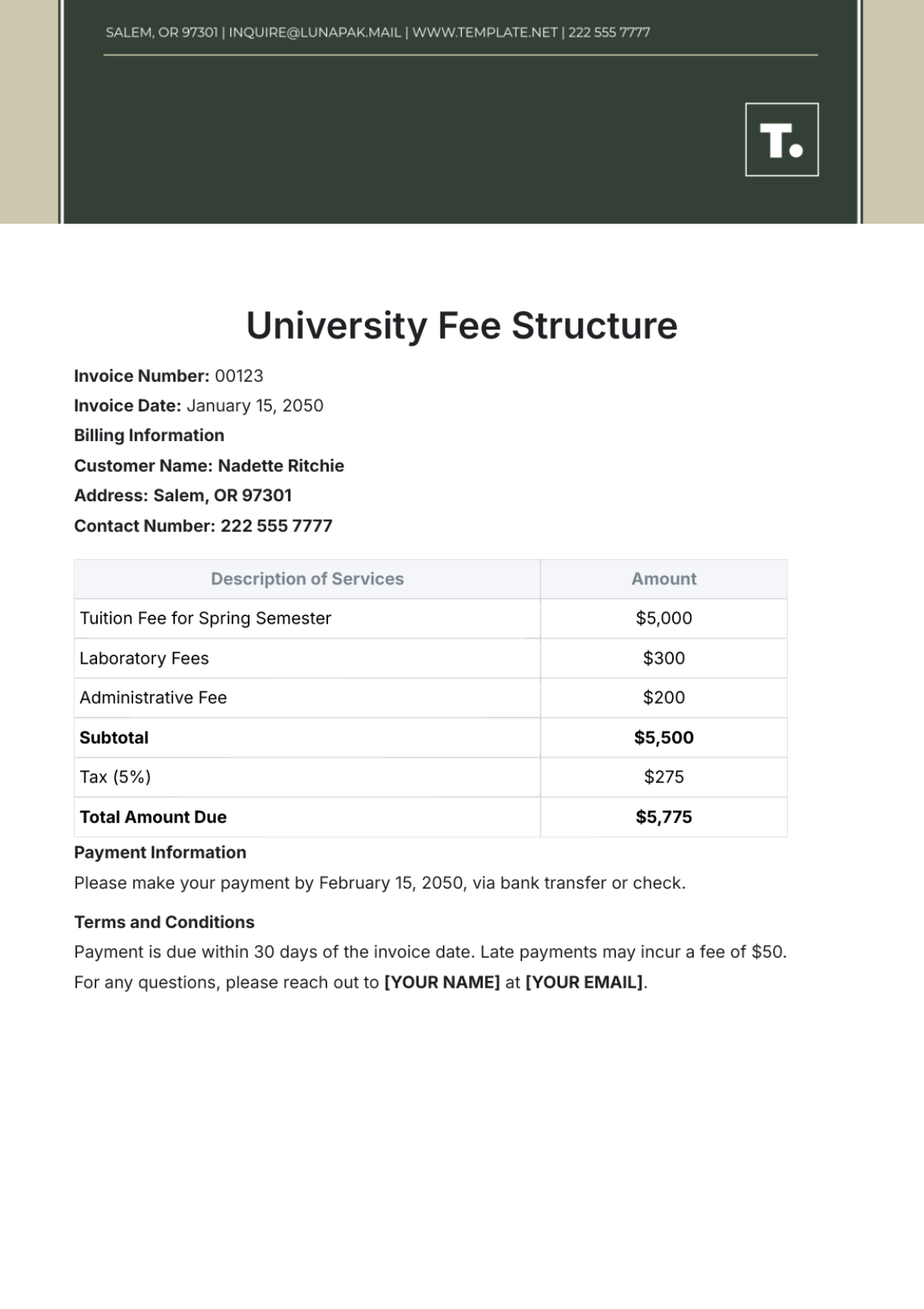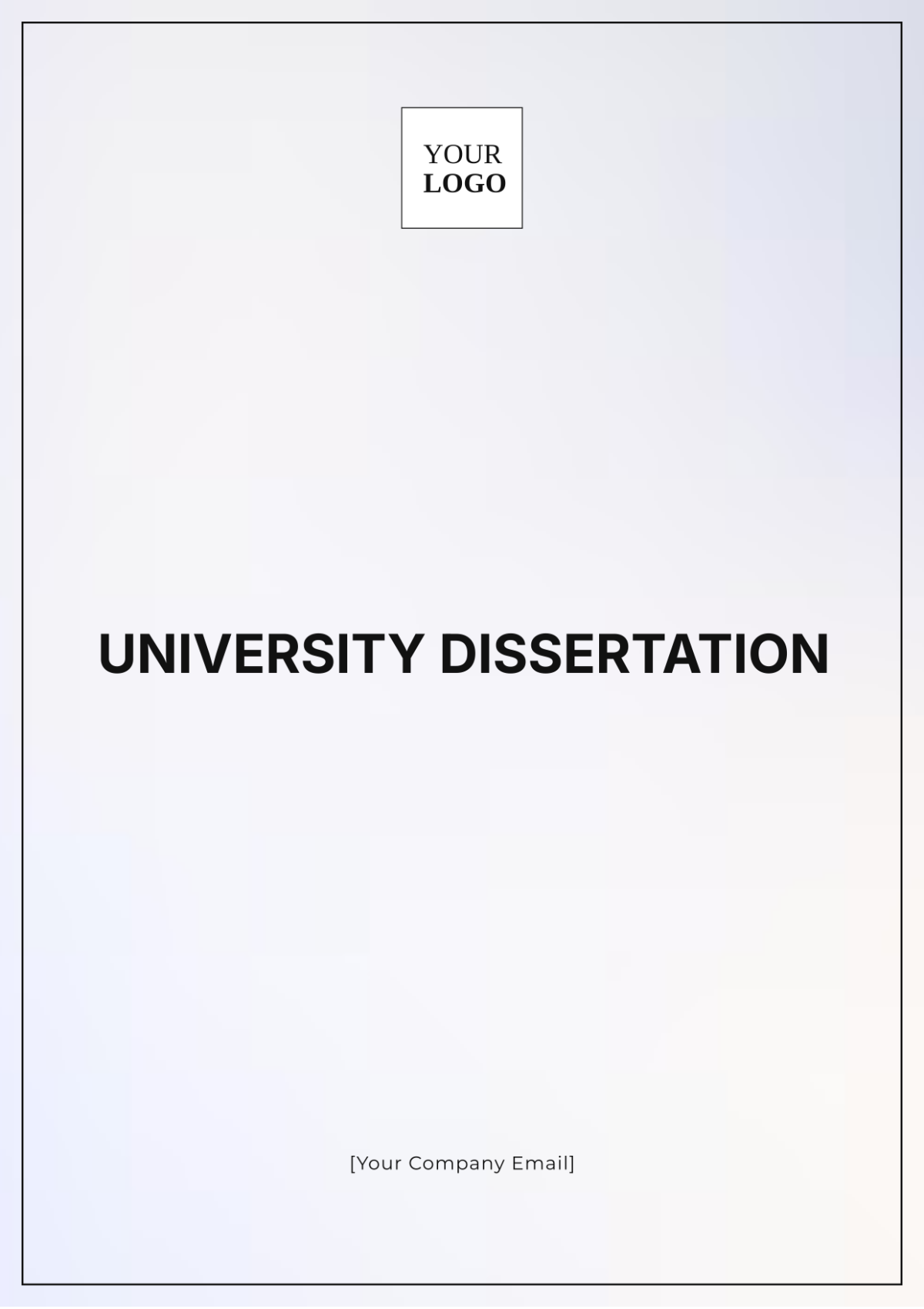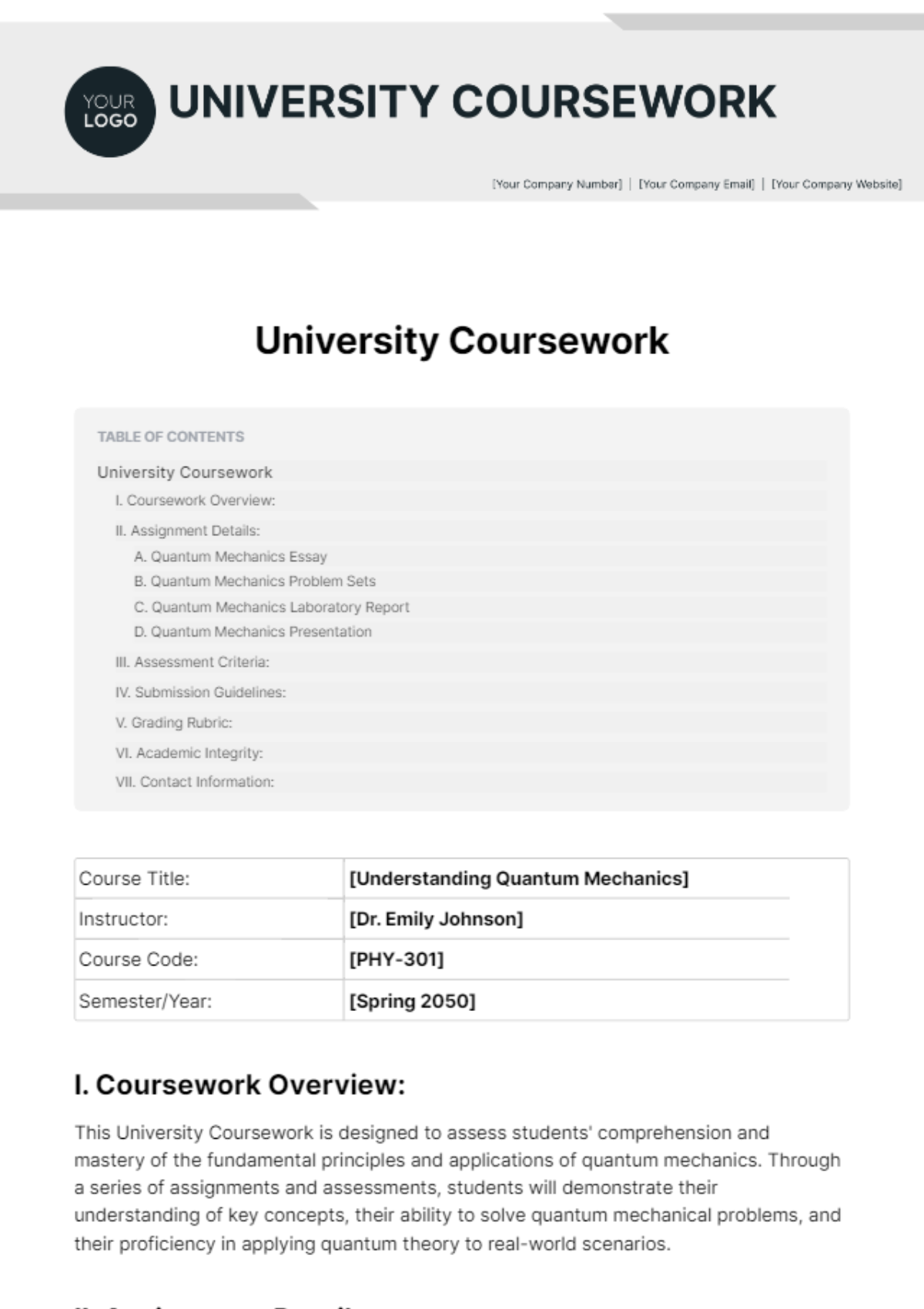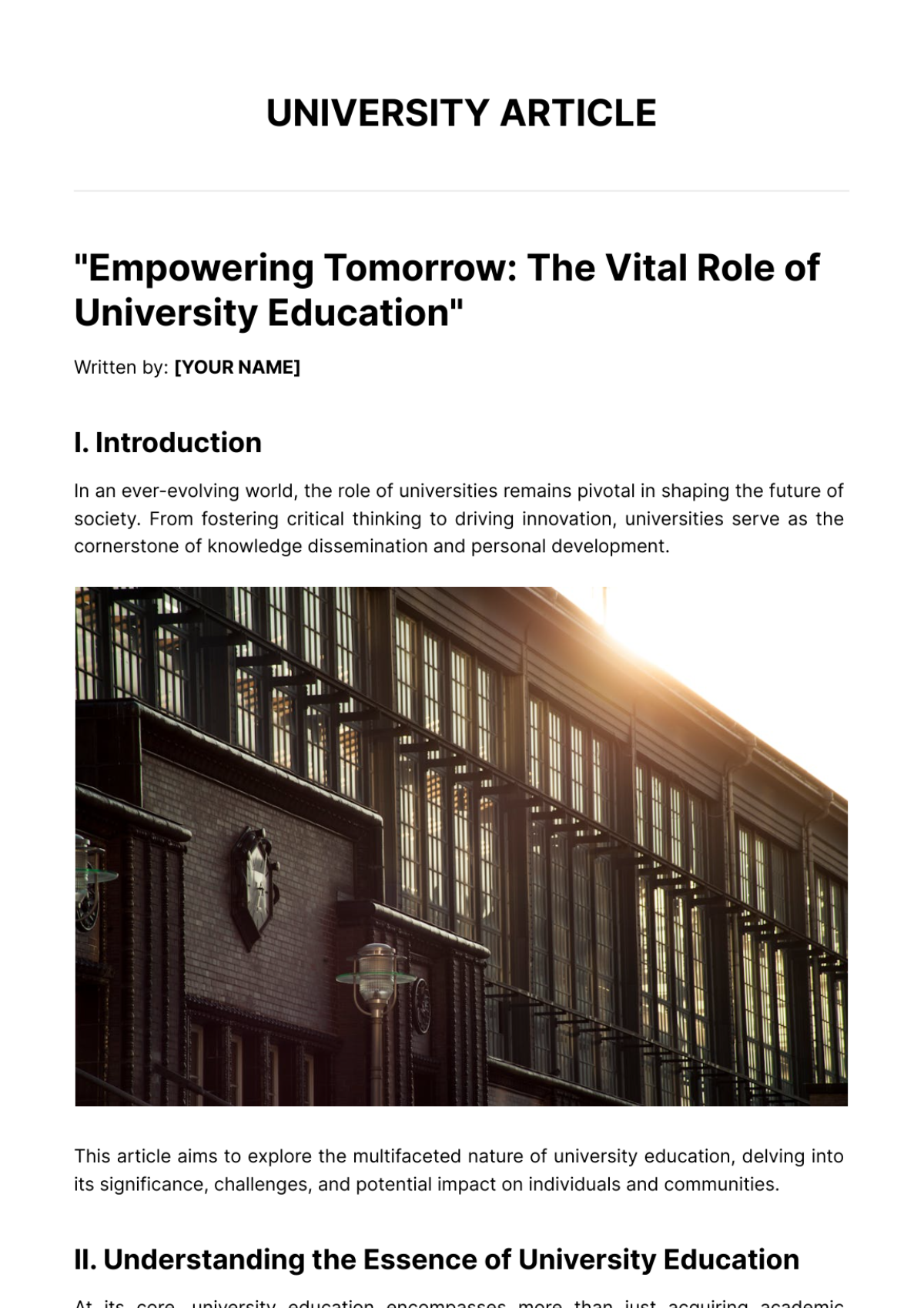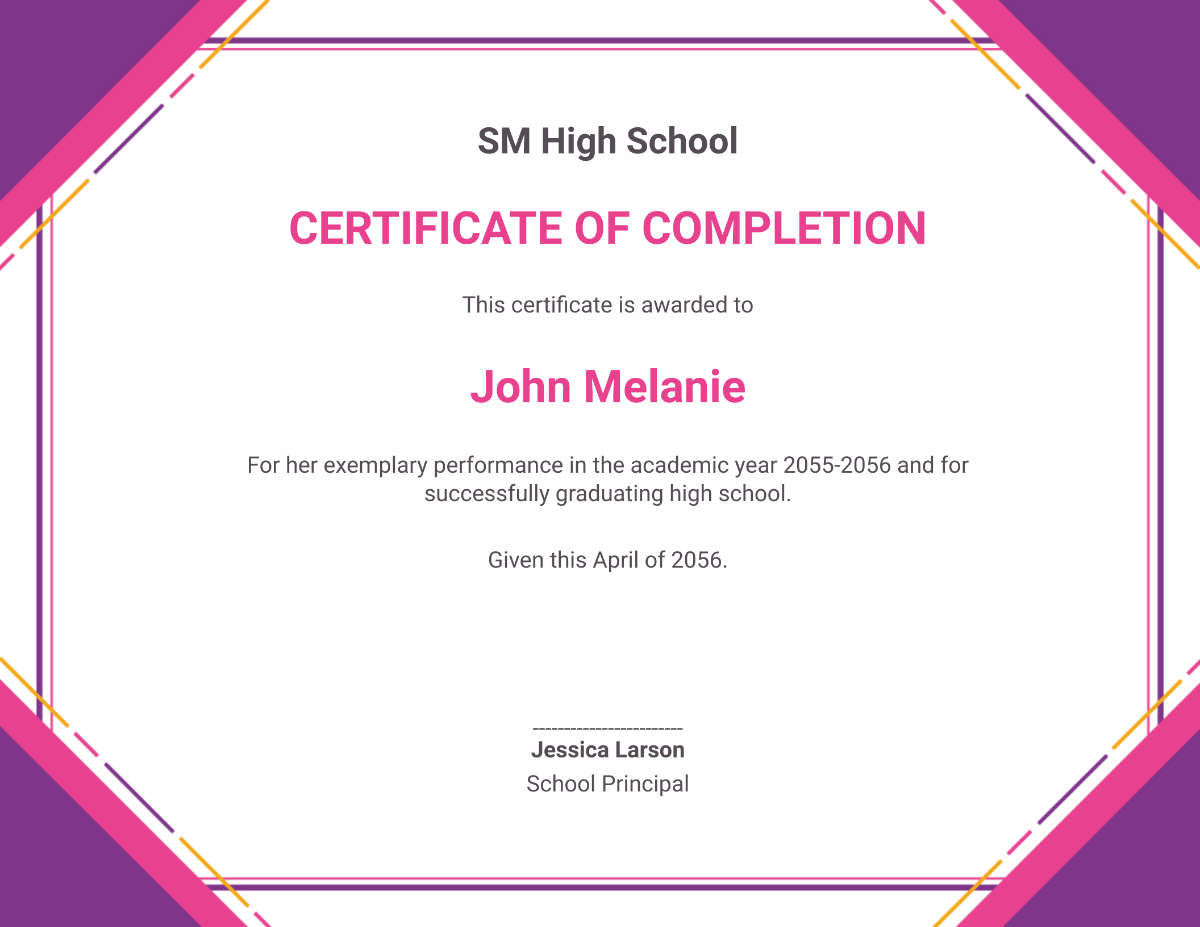University Dissertation
Prepared by: [Your Name]
Date: [Date]
1. Abstract
A university dissertation is a cornerstone of academic achievement, symbolizing the culmination of years of study and research. This dissertation explores the multifaceted components of a university dissertation, including its structure, significance, and the processes involved in its creation. Through a detailed examination of the common sections, methodologies, and use cases, this work aims to provide a comprehensive guide for students and academics. Additionally, the study discusses the broader impact of dissertations on academic fields and professional development.
2. Introduction
2.1 Background
A university dissertation is a substantial piece of academic writing based on original research, usually submitted as part of a graduate or doctoral degree. It represents a significant academic achievement and requires the student to contribute new knowledge or insights into their field of study.
2.2 Objectives
The primary objectives of this dissertation are:
To define what constitutes a university dissertation.
To explore the common structure and components of a dissertation.
To understand the role of dissertations in academic and professional contexts.
To provide a detailed guide for students undertaking dissertation work.
2.3 Research Questions
This dissertation addresses the following research questions:
What are the essential components of a university dissertation?
How does the structure of a dissertation support its academic purpose?
What methodologies are commonly used in dissertations?
How do dissertations contribute to academic fields and professional growth?
2.4 Significance of the Study
The study is significant, as it provides a comprehensive overview of what is required to create a successful university dissertation. It serves as a guide for students, aiding them in understanding the expectations and standards of academic writing at the graduate level.
3. Literature Review
3.1 Historical Development of the Dissertation
The concept of a dissertation has evolved over centuries, originating from the Latin term "dissertātiō," meaning "discourse" or "debate." Initially, dissertations were oral debates on a specific thesis, but over time, they became formal written documents. The evolution of the dissertation reflects the broader trends in academic rigor and the pursuit of knowledge.
3.2 Importance of Dissertations in Academia
Dissertations are vital in academia as they:
Contribute new knowledge to a field.
Demonstrate the research capabilities of students.
Serve as a requirement for obtaining advanced degrees.
Influence future research directions.
3.3 Common Challenges in Dissertation Writing
Students often face challenges in:
Topic selection and narrowing down the research question.
Time management and staying on schedule.
Ensuring originality and avoiding plagiarism.
Understanding complex methodologies.
4. Methodology
4.1 Research Design
This study adopts a qualitative research design, involving a detailed analysis of existing academic literature on dissertations. It also includes a comparative study of dissertation structures across various academic fields.
4.2 Data Collection
Data was collected through:
Review of academic papers and books on dissertation writing.
Analysis of dissertation samples from different universities.
Interviews with academic advisors and recent graduates.
4.3 Data Analysis
The collected data was analyzed using thematic analysis, identifying common themes and patterns in dissertation structures, methodologies, and challenges faced by students.
4.4 Limitations
This study is limited to the analysis of dissertations in English-speaking universities. Differences in dissertation formats in non-English-speaking countries are not covered.
5. Results
5.1 Common Dissertation Structures
The analysis reveals that most dissertations follow a standard structure, as shown in Table.
Section | Description |
|---|---|
Title Page | Includes the title, author, institution, and date. |
Abstract | A concise summary of the research. |
Introduction | Sets the stage for the research, outlining the problem and objectives. |
Literature Review | Reviews existing research and identifies gaps. |
Methodology | Describes the research design and methods used. |
Results | Presents the findings of the study. |
Discussion | Interprets the results and their implications. |
Conclusion | Summarizes the research and suggests future directions. |
References | Lists all the sources cited. |
Appendices | Includes supplementary material such as questionnaires, data, etc. |
5.2 Common Methodologies
Dissertations in different fields often employ the following methodologies:
Quantitative Research: Involves the collection and analysis of numerical data. Common in sciences and social sciences.
Qualitative Research: Focuses on understanding phenomena through interviews, observations, and textual analysis. Common in humanities and social sciences.
Mixed-Methods Research: Combines both quantitative and qualitative approaches to provide a comprehensive analysis.
5.3 Use Cases of Dissertations
Dissertations serve various purposes:
Academic Fulfillment: Meeting degree requirements.
Publication: Parts of the dissertation may be published in journals.
Career Advancement: Demonstrating expertise in academic or professional roles.
Further Research: Serving as a foundation for future research projects.
6. Discussion
6.1 Impact of Dissertation on Academic Development
Dissertations play a crucial role in the academic development of students by:
Enhancing research skills.
Encouraging critical thinking and problem-solving.
Building expertise in a specialized area.
6.2 The Role of Advisors and Committees
The role of academic advisors and dissertation committees is critical in guiding students through the dissertation process. Advisors help in refining research questions, selecting appropriate methodologies, and ensuring the research stays on track.
6.3 Challenges and Solutions in Dissertation Writing
A. Challenges:
Time Management: Balancing research with other responsibilities.
Research Complexity: Navigating complex methodologies and large datasets.
Writing and Revision: Ensuring clarity, coherence, and academic rigor.
B. Solutions:
Setting Timelines: Creating a detailed plan with milestones.
Seeking Feedback: Regularly consulting with advisors and peers.
Using Tools: Employing writing aids and software for managing references and data.
7. Conclusion
7.1 Summary of Findings
This dissertation has provided a detailed overview of the structure, significance, and common challenges associated with university dissertations. It has highlighted the standard sections, typical methodologies, and the crucial role dissertations play in academic and professional contexts.
7.2 Recommendations for Future Research
Future research could explore:
Comparative studies of dissertation formats across different cultures and academic systems.
The impact of digital tools on the dissertation writing process.
The role of interdisciplinary research in shaping dissertation methodologies.
7.3 Final Thoughts
The university dissertation is more than just a requirement for a degree; it is a testament to a student's research capabilities and their contribution to the academic community. By understanding its structure and significance, students can better navigate the challenges of dissertation writing and produce work that stands the test of time.
8. References
Smith, J. (2050). The Dissertation Journey: A Practical and Comprehensive Guide to Planning, Writing, and Defending Your Dissertation. XYZ Publishing.
Brown, L. (2051). Understanding Research Methodologies in Dissertations. ABC Academic Press.
Davis, K. (2052). Challenges in Dissertation Writing: A Student’s Perspective. DEF University Press.
